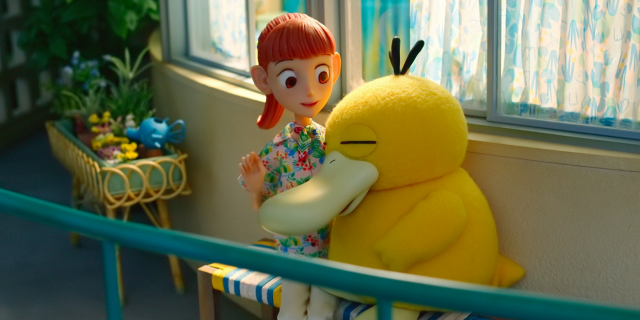Highlights
- Pokemon Concierge offers a more relaxed and stylish take on the Pokemon franchise, focusing less on battling and more on the Pokemon Resort’s calming atmosphere.
- The stop-motion animation in Pokemon Concierge showcases impressive tactile artistry, with deliberate focus and depth in each frame, and inventive facial expressions for the human characters.
- While the CGI effects can be noticeable, the lush and plastic environments still create a charming dollhouse-like atmosphere that immerses viewers in the series. Overall, Pokemon Concierge’s passion and artistry make it a delightful treat for fans of the franchise.
Pokemon is a juggernaut of a franchise. Spanning nine generations worth of collectible monsters, one of the best-selling video game series ever, an anime series now in its 26th season, as well as its two dozen theatrical films, you’d still only be scratching the surface.
But amid the massive scope of this franchise, its newest anime on series takes a more calm, relaxed feel. And ever since the first trailer and press junket started at this past summer’s Anime Expo, it’s been an anticipated piece of artistry.
An Iconic Franchise Takes It Easy

Pokemon Concierge is an original stop-motion anime series, centering around the aptly-named Pokemon Resort, where Pokemon go to relax. Whereas the mainstay of the Pokemon universe has always been about the fighting and battling of the monsters, this series mostly eschews the sense of battling for a more stylish feel that has existed in the Pokemon games since Ruby and Sapphire’s Pokemon Contests, and in the main anime series for long before even that.
The audience is welcomed to the Resort through the porcelain eyes of Haru, a young concierge played by Japanese actress and designer Non, who herself got her start on a thematically similar Japanese drama series about a young girl living along the seaside coasts of northern Japan. There are very few poke-balls, all fighting is more or less play-fighting, and the easter egg feel of the game comes mostly in the form of musical cameos from Junichi Masuda’s legendary game soundtrack. This is the sort of luxurious Pokemon fitting in more with the mobile Pokemon Café Mix than with the intense strategizing of Sinnoh’s Battle Tower. Whether watching Haru settle down with candies or looking out to the open sea, the work encapsulates the calming feel of early summer in spite of its late December release.
Stop-Motion Art & Pokemon Are a Perfect Fit

Being the first stop-motion Pokemon animation series, the series deserves a lot of recognition for the tactile artistry that vibes across its entire run. Assembled from effects and photographs, the frames have a very deliberate sense of focus and depth that’s hard to come by in more traditional animation. The different Pokemons’ models are made with specific materials that highlight the distinctiveness of their designs, such as the extra fur on a scampering Furret in the earlier episodes, or the choice to render Pikachus’ eyes with a porcelain not unlike the human characters, a distinctive flair that the final episode of the show describes as “iconic,” humorously self-reflexive of Pikachu’s actual status as the mascot of the franchise.
As for the human characters, their rendering of varying facial expressions is inventive. The designs of Haru and her fellow staff at the Pokemon Resort really maximize the range of expression that can be afforded to something as simple as a look, a head movement, or the varying placement of eyelids. Like all good stop-motion projects, these are choices that were incredibly deliberate and technical, all for the aim of creating a sense of effortless naturalism in the final animation.
The environments of the series are both lush and plastic, creating a sort of artificial dollhouse-charm. While the movement of the characters are all stop-motion, the animation also uses visual effects and CGI for various purposes like water splashes, fire, or the rippling of water along the seashore or in the background rivers. These effects are fairly visible as CGI, creating a noticeable clash with the stop-motion. The noticeable effects techniques are hardly enough to take away the sense of immersion that the rest of the animation brings.
Pokemon Concierge is a very short work, consisting of four episodes of about 12-15 minutes, and easily watchable in a single sitting. Just as Haru seems to fully acclimate to her role and life at the Pokemon Resort, the series ends. What it is right now feels like a pitch of what it could be. The varying episodes are best viewed in order, and something about its format almost invites a desire to view each episode as a sort of pre-movie cartoon that would play in a 20th-century movie theater or a Pixar movie. If one were to play some of the best Pokemon movies with the different episodes of Pokemon Concierge as introductory cartoons, that would be a Pokemon movie night.
The passion and artistry behind Pokemon Concierge help it overcome the limitations of its short runtime and limited scope, and it’s something that would benefit greatly from a second season with new sets and new Pokemon. But as is, Pokemon Concierge is already exactly like one of Haru’s candies—a small, delicious confection celebrating the warmth of one of the biggest franchises in pop culture.
Series: Pokemon Concierge
Rating: 3.5/5
Produced by Dwarf Studios and Netflix











Leave a Reply